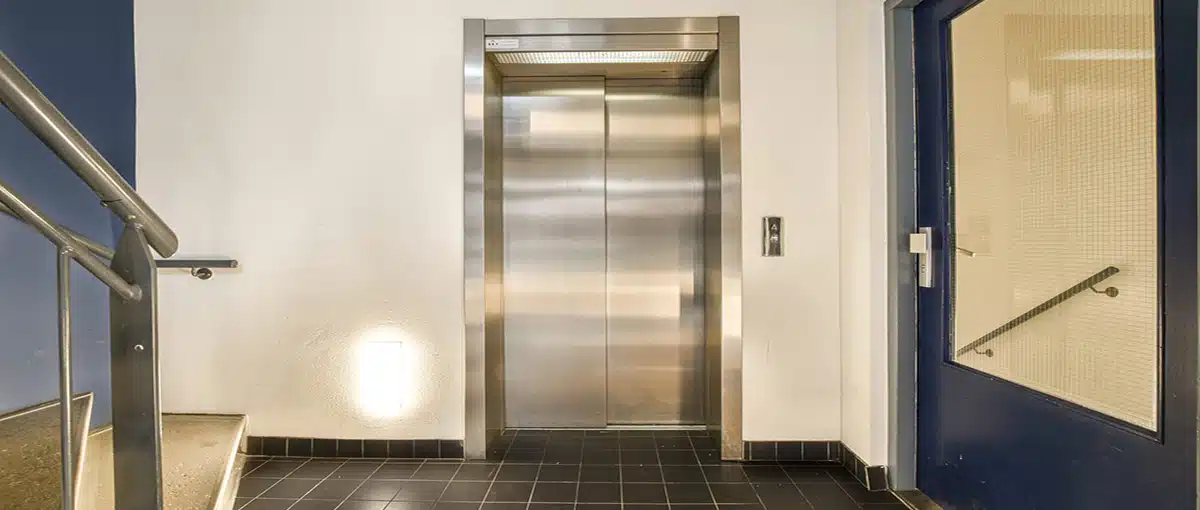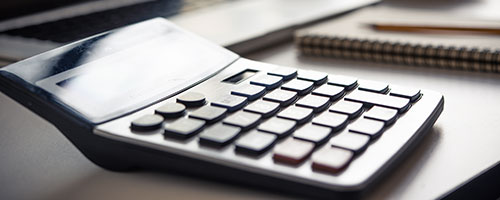
Automatic Door Accidents & Your Right to Compensation
Learn what steps to take after an automatic door accident and who may be held liable for damages in Colorado
Automatic doors are a convenience we often take for granted, but when they malfunction, they can cause serious injuries. Understanding who is legally responsible for such accidents and the steps to take immediately after an accident is crucial for securing the financial compensation you deserve.
In this article, we’ll discuss the most common causes of automatic door accidents, who’s most at risk, and what you need to do to prove negligence and increase your chance of recovering compensation for your injuries.
Are automatic doors a safety hazard?
While automatic doors are generally considered safe when maintained and used correctly, people can and do get injured by automatic doors. Older adults are particularly vulnerable, as slower reflexes and pre-existing conditions put them at higher risk for serious injuries such as broken bones, head trauma, and spinal injuries if a door malfunctions.
Young children and individuals with certain disabilities are also at greater risk. Children may not be able to anticipate the door’s movement or may be too small for the sensors to detect, leading to potential injuries. People with disabilities that include mobility challenges or cognitive impairments may have difficulty navigating or reacting to automatic doors quickly, increasing their chances of being hurt.
Ensuring regular maintenance and safety checks of automatic doors is crucial to protecting all individuals, especially those who are more vulnerable.
What are the most common injuries from automatic doors?
Perhaps the most common injury involving automatic doors is broken bones, particularly in the hands or fingers. This typically happens when a door closes unexpectedly or too quickly, trapping a limb in the process. Hands and fingers are especially vulnerable since they are often used to push or steady oneself when passing through the door.
Other common injuries from automatic doors include:
- Crushed limbs or extremities. These can occur when the door closes unexpectedly or malfunctions, trapping a person’s hand, arm, foot, or leg between the door and the frame. These injuries can range from minor bruises to severe fractures or even amputations in extreme cases.
- Head injuries. If someone falls or is struck by a malfunctioning door, they can suffer head injuries like concussions, skull fractures, or traumatic brain injuries. These injuries can have serious and long-lasting consequences.
- Back and spinal cord injuries. A fall or sudden impact from a malfunctioning door can result in serious back injuries or spinal cord damage, potentially leading to chronic pain, mobility issues, or even paralysis in severe cases.
- Lacerations and cuts. The glass panels in automatic or revolving doors can shatter upon impact, causing deep cuts and lacerations. These injuries can lead to significant blood loss, nerve damage, and scarring.
- Sprains and strains. The force of a door closing unexpectedly or the awkward movements required to navigate a malfunctioning door can lead to sprains and strains in the wrists, ankles, knees, or back.
- Psychological trauma. Witnessing or experiencing an accident with an automatic or revolving door can be a frightening event, leading to anxiety, post-traumatic stress disorder (PTSD), or other psychological conditions.
- Internal injuries. In severe cases, if someone is crushed or thrown by a malfunctioning door, they could suffer internal bleeding or organ damage.
- Fatal injuries. Although rare, deaths have occurred due to automatic or revolving door accidents. These incidents of wrongful death typically result from severe head trauma or crushing injuries to small children.
In the news: Faulty automatic doors at airport leave multiple people injured
In September 2023, First Alert 4 reported that 3 people, including 2 elderly women, were injured by malfunctioning automatic sliding doors at St. Louis Lambert International Airport. The incidents, which occurred within a week and a half, raised concerns about the safety of automatic doors at the busiest airport in the state.
While airport officials claim the doors were functioning correctly, further investigation is underway to assess whether negligence or maintenance issues contributed to the accidents. These incidents have prompted a review of safety protocols at the airport to prevent similar accidents in the future.
What are the most common causes of automatic door malfunctions?
Automatic door malfunctions can result from a variety of factors, many of which are preventable with proper care and attention. The most common causes of automatic door malfunctions include:
- Sensor failure. Automatic doors rely on motion or presence sensors to detect people. When these sensors are dirty, blocked, or malfunctioning, they may fail to detect someone in the door’s path, leading to accidents.
- Lack of maintenance. Poor upkeep, such as not cleaning sensors or lubricating moving parts, is a frequent cause of automatic door malfunctions. Regular maintenance is essential for smooth operation and safety.
- Wear and tear. Over time, mechanical components like hinges, rollers, or belts can wear out, causing the door to malfunction or stop working altogether.
- Improper installation. If an automatic door is not installed correctly, it may not align properly, leading to operational issues and safety hazards.
- Power supply issues. Fluctuations or interruptions in power can cause doors to stop working or behave unpredictably.
- User error. Sometimes, people may approach the door too quickly or stand too close, confusing the sensors or causing the door to malfunction. Misuse or tampering with the door’s operation can also lead to accidents.
When automatic door accidents result in an injury caused by someone else’s negligence, the injured party may be entitled to compensation through a personal injury lawsuit.
Who is liable for an automatic door injury?
Liability for an automatic door injury hinges on the legal concept of negligence. Negligence occurs when another party (a person, business, or government entity) fails to exercise reasonable care, resulting in harm to others.
To prove negligence in an automatic door injury case, you must show that the responsible party had a duty to maintain safe conditions, breached that duty, and this breach directly led to the injury.
Some potentially liable parties in an automatic door accident include:
- Property owners. They are responsible for ensuring that automatic doors are properly maintained and safe for use on their premises.
- Installers. If the automatic door was improperly installed, the company or individuals who installed the door may be liable for the resulting injury.
- Employees. In cases where employees tamper with or misuse the door, they or their employer may be held responsible if this leads to an injury.
- Maintenance companies. If a third-party company is contracted to service and maintain the doors, they could be liable for failing to properly inspect or repair malfunctioning doors.
- Manufacturers. If a defect in the design or manufacturing of the automatic door caused the injury, the manufacturer may be held liable under product liability laws.
Each case depends on specific circumstances, and determining liability often requires a thorough investigation, looking closely at records of the door’s installation, maintenance, and use. To maximize your chances of recovering compensation for medical bills, lost wages, pain and suffering, and more, consider reaching out to a local Denver personal injury attorney who can explain your rights and legal options.
Types of Recoverable Damages in Your Personal Injury Lawsuit
Learn which types of compensation you may be eligible for after an injury in Colorado and how they’re calculated.
What steps should be taken after an automatic door injury?
If you’ve been injured by an automatic door and want to pursue compensation, it’s important to follow a few key steps to strengthen your case. From seeking immediate medical attention to gathering evidence and consulting an attorney, each action helps protect your rights and build a solid case.
Below are some steps you can take to help strengthen your injury claim:
- Seek medical attention. Immediate medical care is important to treat your injuries and create documentation that links the injury to the accident. This is crucial for a successful personal injury claim.
- Document the scene. Take photos or videos of the door, surroundings, and your injuries. Also, preserve any damaged personal items as potential evidence.
- Gather witness information. Collect contact details from witnesses who saw the incident. Their accounts may support your claim if liability is contested.
- Report the incident. Notify the property owner or manager, and ensure an official incident report is created. Keep a copy for your records.
- Consult an attorney. Speak with a personal injury lawyer specializing in premises or product liability to assess your case and begin legal proceedings. Refrain from discussing the incident or accepting settlements before consulting with a lawyer. You should also avoid posting about it on social media.
By staying proactive and documenting the incident thoroughly, you increase your chances of a successful outcome.
How long after an injury can I file a personal injury claim in Colorado?
In Colorado, the statute of limitations for product liability or premises liability claims is typically 2 years from the date of the accident. It’s essential to act within this timeframe, as missing the deadline can prevent you from seeking any compensation for your injuries.
Injured by an automatic door? Get help from an experienced Colorado personal injury attorney
If you’ve been injured by an automatic door or any other accident caused by someone else’s negligence, The Babcock Law Firm is here to help. Our experienced Denver personal injury attorneys understand how overwhelming the aftermath of a serious injury can be, and we’re committed to fighting for the compensation you deserve.
We offer personalized support and expert legal guidance to ensure you’re fully informed every step of the way. From gathering evidence to negotiating with insurance companies, our attorneys will help you navigate the legal process with confidence and ease.


